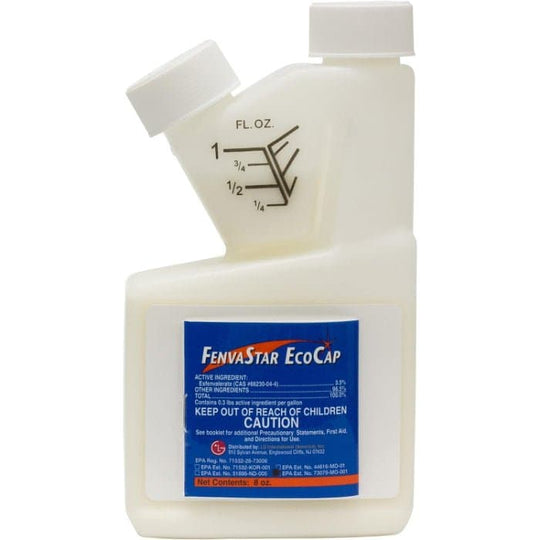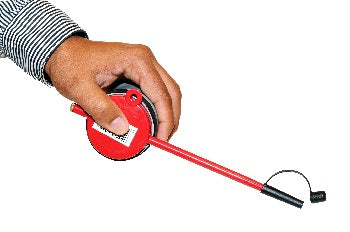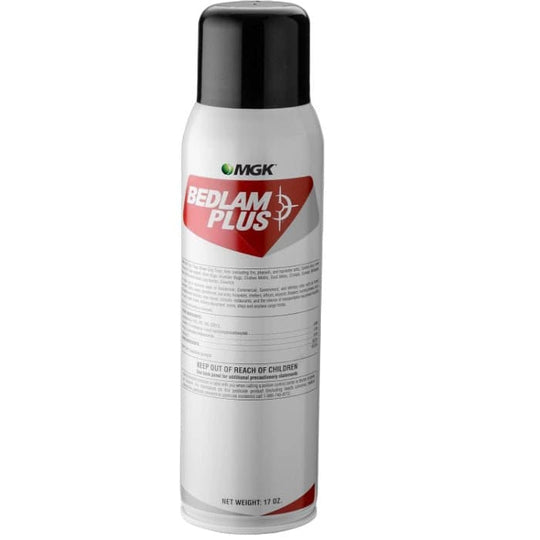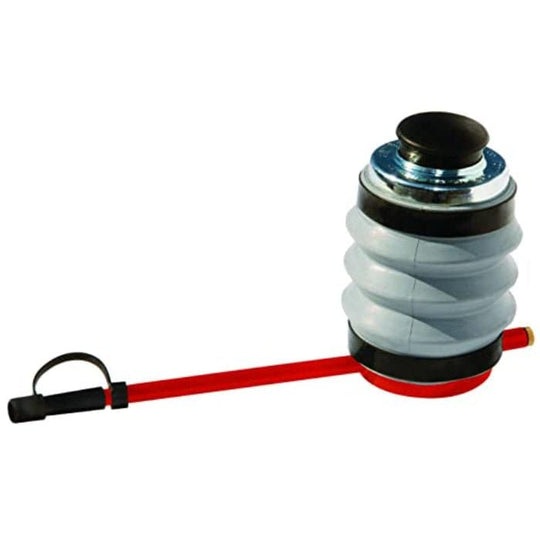Bed Bug Kit # 1 Direction
DIRECTION FOR USE
Frequently Asked Questions
Why do I need to use so many different products?
It is important to treat the many different areas that bedbugs hide. Each product included in the kit has a specific function to help eliminate a bedbug infestation. Using the same active ingredient over and over can lead to resistance and make extermination even more difficult.
What is the Guarantee that these Bed Bug products will work against Bed bug at my Home or Business?
Our bed bug kits feature top of the line products, the same products used by pest control professionals. Each kit comes with full instructions that explain exactly how and where to apply the products. Our kits have a very high success rate when customers follow the instructions, take their time, and treat thoroughly.
Can I use Bug bombs or Fogging?
Space treatments ("fogging" and "bug bombs") are ineffective against well-hidden bed bugs and may cause bed bugs to scatter making eradication more difficult.
How many rooms should I have to treat for complete eradication of Bed bug?
Depend on type of property, you will treat room as per. See below three type of construction viz; Ground Floor, 2 Floor and three floor property.



How many treatments should I have to do for complete eradication of Bed bug?
The first application may not give complete or immediate control; approximately 7 - 10 days post inspection, and another inspection of the premises is required to confirm that all Bed bugs were eliminated. This inspection must be as through as the preliminary inspection (described above), and if bugs are found again, control procedures must be repeated.
Step-by-Step Bed Bug Treatment Guide
See below step 1 to 5 with pictures and information on how and where to use every product in your kit.

Step 1: Inspection sites of Bed bugs
Identifying where bed bugs hide is crucial for effective treatment. Common hiding spots include:


Step 2: Room Preparation
THE MORE PREPARATION THAT IS DONE, THE MORE EFFECTIVE THE TREATMENT WILL BE. LITTLE TO NO PREPARATION WILL RESULT IN POOR CONTROL RESULTS.
Proper room preparation is essential before applying any treatments. This typically involves:
- Decluttering the room, removing items from floors and closets.
- Laundering bedding, linens, curtains, and clothing in hot water and drying on high heat. Store cleaned items in sealed plastic bags.
- Vacuuming thoroughly, including mattresses, box springs, carpets, furniture, cracks, and crevices. Dispose of the vacuum bag immediately afterwards outside the home.
- Moving furniture away from walls to allow access for treatment.
- Disassembling bed frames if possible.

Step 3: Chemical control
Successful bed bug control is thoroughly treating all of the cracks & crevices where bed bugs hide. You should be spending at least 1-2 hours inspecting and treating each infested room. See below diagram that will guide you on where to treat:

Room diagram ©BASF
(A) Fenvastar Ecocap

Use with a 1 Gallon Pump Sprayer (Sold Separately).

Mix 1 oz Fenvastar Ecocap per 1 Gallon of water.
 Chapin 1 Gallon Sprayer (#20000)
Chapin 1 Gallon Sprayer (#20000)
Instructions for Use:
- Fill the sprayer tank half full with water.
- Add Fenvastar EcoCap (1 oz) in 1 gallon of water. Make sure to read the product label for the insecticide you want to use.
- Fill the sprayer tank the rest of the way full with water to make one gallon, close the lid firmly, and agitate the tank to make sure the insecticide/water solution is mixed well.
- Pump the tank to pressurize it by using the pump handle and apply the insecticide using the wand.
- The spray nozzle on the wand can be adjusted to allow for wide or narrow spray patterns.
Use diluted solution within 24 hours of mixing. Shake or stir before each use.
Adjust the nozzle on the sprayer until you have a coarse (flat fan nozzle), low-pressure spray. Recommend cleaning of floors and surfaces by vacuuming.
 Flat-fan nozzle
Flat-fan nozzle
Flat fan produce a fan type spray pattern. These patterns provide an even coat of spray on flat surfaces.
 Pin Point nozzle
Pin Point nozzle
Pin stream nozzles produce solid stream of spray and used to spray into various cracks & Crevices, or in some cases, to project a solid stream of spray.
Apply as a flat-fan, low-pressure spray on harborage areas including; Spray bugs and eggs directly wherever possible following site directions below.
A low fine mist is best for most spraying, but you may need to use a stream to get into some cracks and crevices. If you can't get into the cracks and crevices use Bedlam plus aerosol (B) described below with its crack and crevice tips to reach into these areas.
BED BUG TREATMENT:
Thoroughly clean and sanitize mattresses and box springs. Treat mattresses and box springs with an approved pesticide, such as a pyrethrin aerosol. Apply Fenvastar EcoCap as a spot treatment to potential harborage sites and migration paths, and cracks and crevices, around baseboards, floorboards, headboards, and walls.
Interval between applications: After Initial service – Re-apply next 2 times at every 14 days interval or as needed, until infestation is eliminated.
Read product label for more information.
(B) Bedlam Plus
Spray bed bugs and eggs directly whenever possible.
Shake it well before each use.
Bed Bug Treatment:
For infested mattresses, remove linens and wash before reuse. Apply to tufts, folds, edges, sides and seams until damp. Allow to dry before reuse. Apply on and around baseboards, carpet, rugs, bed frames, box springs, headboards, wheelchairs, closets, wall hangings, furniture, seats, moldings, picture frames, ceiling, drapes, luggage, and walls. Spray bed bugs and eggs directly whenever possible. Use attached straw applicator for crack and crevice treatments.
Interval between applications: After Initial service – Re-apply next 2 times at every 14 days interval or until infestation is eliminated.
See below application of Bedlam Plus according to label Instructions.
-
 Between stapled cloth and bottom frame of boxspring (Remove cloth first)
Between stapled cloth and bottom frame of boxspring (Remove cloth first)
-
 Layer 1: Upper fold, tufts & seams of box Spring
Layer 1: Upper fold, tufts & seams of box Spring
-
 Layer 1: Bottom fold, tufts & seams of box Spring
Layer 1: Bottom fold, tufts & seams of box Spring
-
 Layer 2: Upper fold, tufts & seams of box spring
Layer 2: Upper fold, tufts & seams of box spring
-
 Layer 2: Lower fold, tufts & seams of box spring
Layer 2: Lower fold, tufts & seams of box spring
-
 Layer 1: Upper fold, tufts & seams of mattress
Layer 1: Upper fold, tufts & seams of mattress
-
 Layer 1: Bottom fold, tufts & seams of mattress
Layer 1: Bottom fold, tufts & seams of mattress
-
 Layer 2: Upper fold, tufts & seams of mattress
Layer 2: Upper fold, tufts & seams of mattress
-
 Layer 2: Lower fold, tufts & seams of mattress
Layer 2: Lower fold, tufts & seams of mattress
-
 On and around headboard (all 4 sides)
On and around headboard (all 4 sides)
-
 Crack & Crevice behind Headboard
Crack & Crevice behind Headboard
-
 Recessed screw behind headboard/ furnitures
Recessed screw behind headboard/ furnitures
-
 On and around headboard frame attached to wall (all 4 sides)
On and around headboard frame attached to wall (all 4 sides)
-
 Crack and crevice behind picture frame
Crack and crevice behind picture frame
-
 Crack and crevices of small dresser/furniture
Crack and crevices of small dresser/furniture
-
 Crack and crevices of small dresser/furniture
Crack and crevices of small dresser/furniture
-
 Bed frame joints
Bed frame joints
-
 At the joint of bed frame pole and bed frame
At the joint of bed frame pole and bed frame
-
 Hollow bed frame
Hollow bed frame
-
 Gap between hollow pipe and it's wooden support
Gap between hollow pipe and it's wooden support
-
 At bolt joints
At bolt joints
-
 At the junction of Box spring and below steel plate
At the junction of Box spring and below steel plate
-
 At the joints of box spring frames
At the joints of box spring frames
-
 Inside Perimeter and Spring coil area of box spring
Inside Perimeter and Spring coil area of box spring
-
 Recessed screw behind nightstand
Recessed screw behind nightstand
-
 Recessed screw behind nightstand
Recessed screw behind nightstand
-
 Cracks & Crevices behind mirror
Cracks & Crevices behind mirror
-
 At ceiling-wall junctures
At ceiling-wall junctures
-
 At the joint of baseboard or carpet and carpet tack strips
At the joint of baseboard or carpet and carpet tack strips
-
 At the joint carpet track strips and wall or behind baseboard
At the joint carpet track strips and wall or behind baseboard
-
 Crack & crevice treatment at window, door or wooden wall molding
Crack & crevice treatment at window, door or wooden wall molding
-
 Crack and crevices of furniture
Crack and crevices of furniture
-
 Crack and crevices treatment of furniture
Crack and crevices treatment of furniture
-
 Along seams, folds and crevices of upholstered furniture
Along seams, folds and crevices of upholstered furniture
Read product label for more information.
(C) Sterifab
Recent research shows, sterifab also kill bedbug eggs too.
Application estimates: 10-12 ounces will treat a typical couch or sofa. A gallon will treat about 8 – 10 pieces of upholstered furniture or 5 sets of mattresses and box springs. Shake well with each use.
Bed Bug Treatment:
Steri-Fab must come in direct contact with bedbugs and bedbug eggs to be effective. STERIFAB is so easy to use, with no dilution or prep required. Just spray STERIFAB on mattresses, upholstered furniture, carpets, bedding, furniture, vehicles, lockers, cabinets, drawers, car interiors, animal bedding/cages, beds seats/interiors, hospital waiting room areas, doctors offices, garbage bins etc. and any other inanimate surface.
Interval between applications: Use to spot treat throughout the week where you see signs of bed bug activity (eggs, nymph or adults).
Read product label for more information.
(D) CimeXa Insecticide Dust
Do not use diluted pesticide/s, aerosols, liquid pesticide/s or other moistures condition at the location/s where you applied dust. Because it is not water-proof, this insecticide dust will absorb moisture (which destroys dusts) and it will clump. Last up to 10 years when undisturbed
Instructions for Use (with Duster):
- It is recommended to place a small rocks or pennies in the duster to help break up the dust and prevent it from clumping.
- Simply fill the Crusader Duster half-way with an insecticide dust product such as, Cimexa Insecticide dust and close lid.
- Your hand pressure controls the amount of dust applied Squeeze softly and a little comes out (Photo: 3). Squeeze hard and a lot comes out. You must squeeze light to get thin film of this dust.
- If the tip becomes clogged with lint or trash, an extension and cleaning rod is located on the backside to clean the tip.
- Then lightly squeeze the duster to apply light dust into cracks & crevices



Bed Bug Treatment:
Remove bedding and take the bed apart. Treat the interior framework, joints and cracks in the bed frame. Treat the mattress and box spring, paying particular attention to tufts, folds and edges, and the interior framework of the box spring. Remove wall-mounted head boards and treat the back side. Treat picture frames, moldings, hollow furniture legs, cracks and crevices, along baseboards, and any areas with visible signs of infestation, including rugs and carpet. Treat upholstered furniture by removing or lifting (if possible) the cushions and treating the undersurface. Treat the interior framework, cracks and joints of the furniture, and the folds, tufts and edges of cushions and other upholstered areas. Do not treat toys and stuffed animals with product. Treat wall voids by removing electrical switch plate covers to allow access, but don't apply dust directly in electrical boxes. Apply about ¼ oz of dust to each accessible void.
Treat all wall voids by removing electrical switch plate covers to allow access, but don't apply dust directly in between electric outlet plate and wall. See any other wall void inside rooms and apply about ¼ oz of dust to each accessible void.
Interval between applications: You will apply only one time at the time of initial application. CimeXa Insecticide Dust is 100% Silica Gel and can last up to 10 years when placed in wall voids and undisturbed.
See below application of Cimexa Insecticide Dust according to label Instructions.
Treat all wall voids by removing electrical switch plate covers to allow access, but don't apply dust directly in between electric outlet plate and wall. See any other wall void inside rooms and apply about ¼ oz of dust to each accessible void.

Step 4: Follow up inspections and treatments
The first application may not give complete or immediate control.
Follow-up treatment: In order to break life cycle of Bed bug, you need to use following chemicals as per label instructions that are crucial to eradicating the problem.
| Product Photo | Product name | Initial application | Follow-Up treatment |
|---|---|---|---|
 |
1 X Fenvastar Ecocap |
Yes | Re-apply next 2 times at every 14 days interval or until infestation is eliminated. |
 |
2 X Bedlam Plus (17 oz) Bedlam Plus uses a dual mode of action that kills the toughest pyrethroid-resistant bed bugs and their eggs for two weeks after treatment. |
Yes | Re-apply next 2 times at every 14 days interval or until infestation is eliminated. |
 |
CimeXa Insecticide Dust is 100% Silica Gel and can last up to 10 years when placed in wall voids and undisturbed. |
Yes | One application can last up to 10 years when placed in wall voids and undisturbed. |
 |
Using a duster allows you to inject dust more easily into cracks and crevices or inside wall voids where insects like to hide. |
(Tool) | (Tool) |
 |
1 X Steri-Fab (16 oz) Kills Bed bugs on contact. |
Yes. |
As when required. Wherever you see signs of bed bug activity (eggs, nymph or adults). |

Step 5: PRECAUTIONS NEED TO TAKE CARE AFTER APPLICATION
- Treated area(s): Do not allow unprotected persons, children, or pets to touch enter or replace items or bedding to contact or enter treated area(s) until dry.
- Ventilation/Re-occupying: Vacate and keep area(s) closed to 30 minutes after treatment, then ventilate area(s) for 2 hours before reoccupying.
- For infested hotel rooms, apartment & House rooms must be kept unoccupied until the infestation is declared eradicated.
- Wait for all mattresses, sofas, etc. to dry before sitting or laying on them. The chemicals used to exterminate the premises will irritate your skin.

Step 6: PREVENTION OF BED BUGS
Encasements
An encasement is a fabric covering that completely encloses a mattress or box springs. It creates a barrier to prevent bed bugs from infesting or escaping mattresses or box springs. Although the encasement can become infested themselves, the infestation is easier to detect. They are useful when you want to protect a mattress you know is free of bed bugs (it has been heat treated or you have purchased a new mattress). You can also use encasements on infested mattresses and box springs trapping the bed bugs inside them and allowing you to continue to use them as long as they are not ripped or torn. Make sure you buy encasements that are specifically designed for protecting against bed bugs. You can purchase encasements from our website.
Click here for purchase encasements
Bed bug interceptors
These are small plastic trays with an inner and outer ring. They are intended to be placed under the bed legs. Bed bugs that attempt to climb up from the floor to the bed become trapped in the outer well. Any bed bugs that try to climb down will become trapped in the center well. Bed bug interceptors not only help to reduce the number of bed bugs that can reach the bed but also acts as a monitoring tool to help determine whether bed bugs are present (if that is an issue). You can purchase Bed Bug Interceptors from our website.














